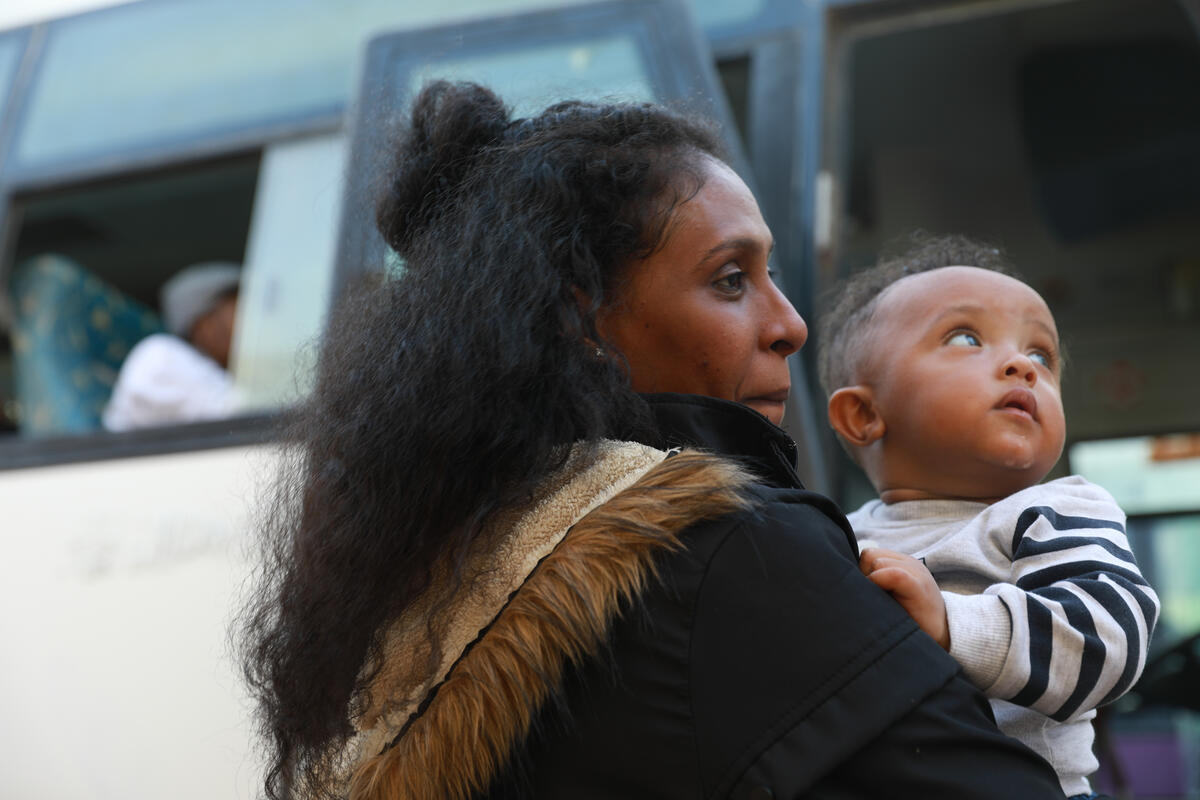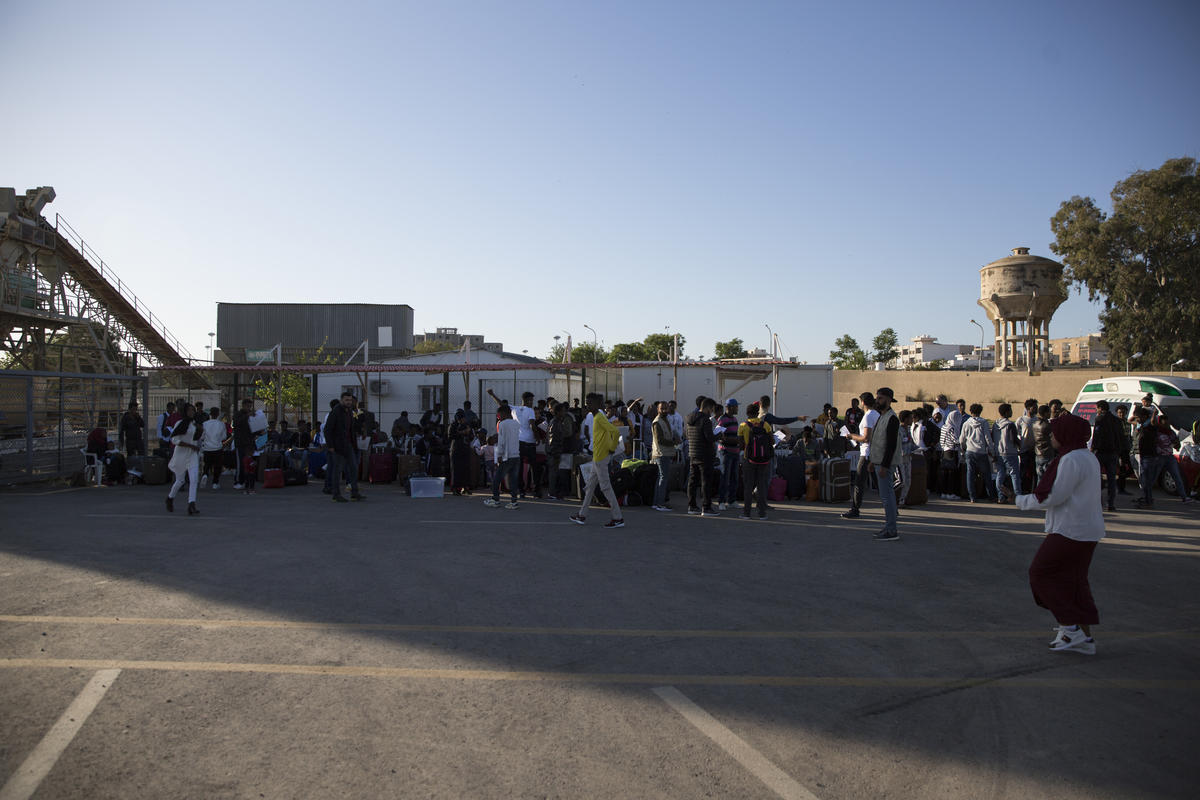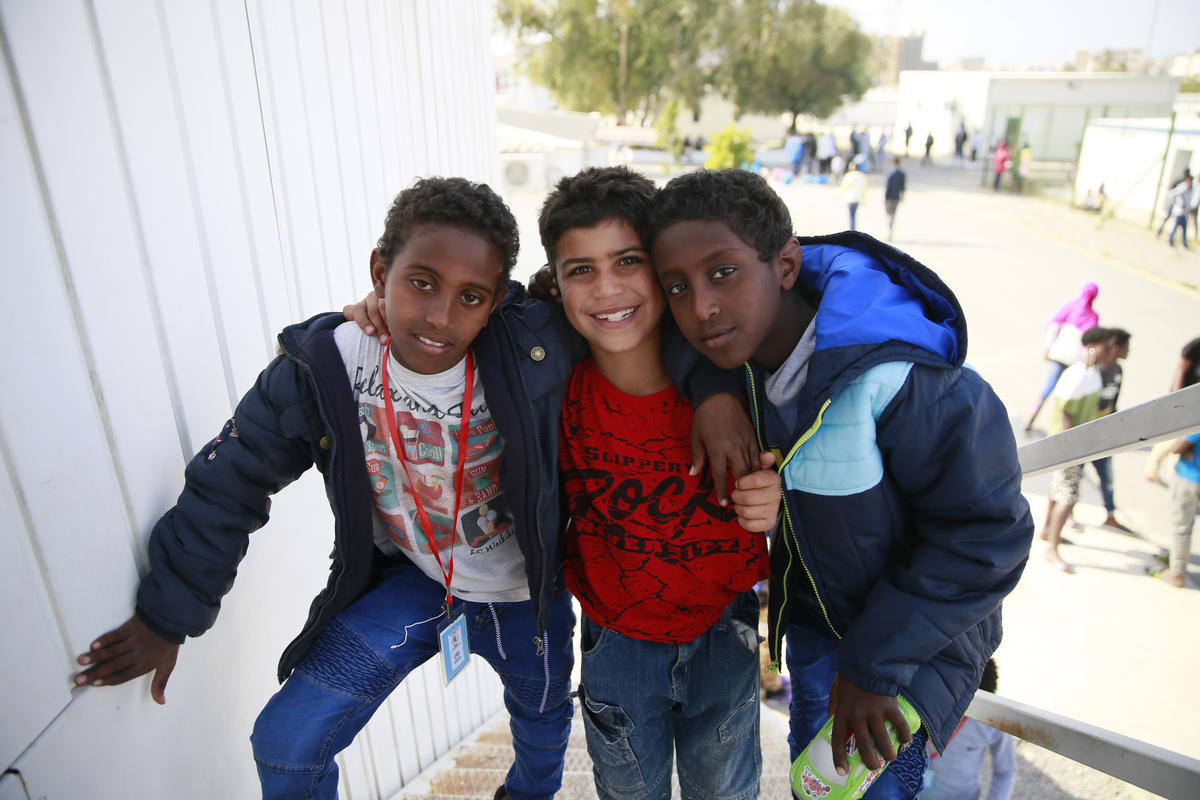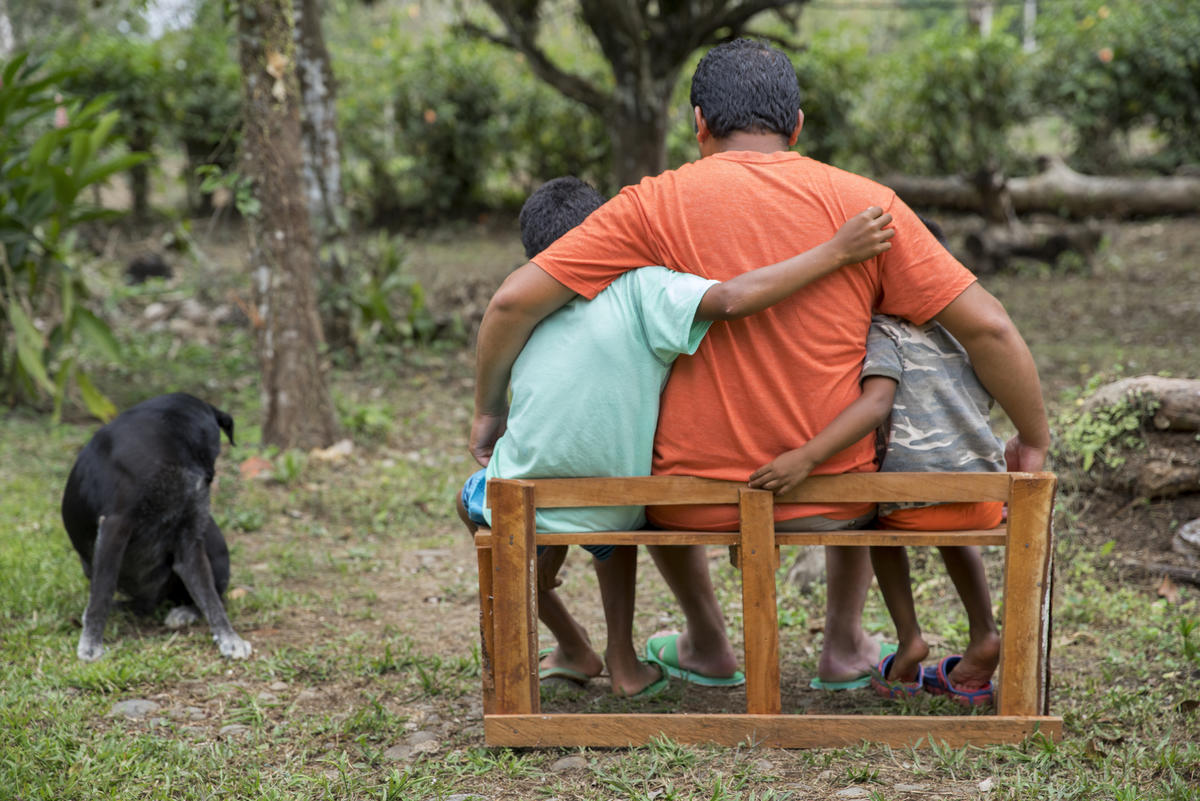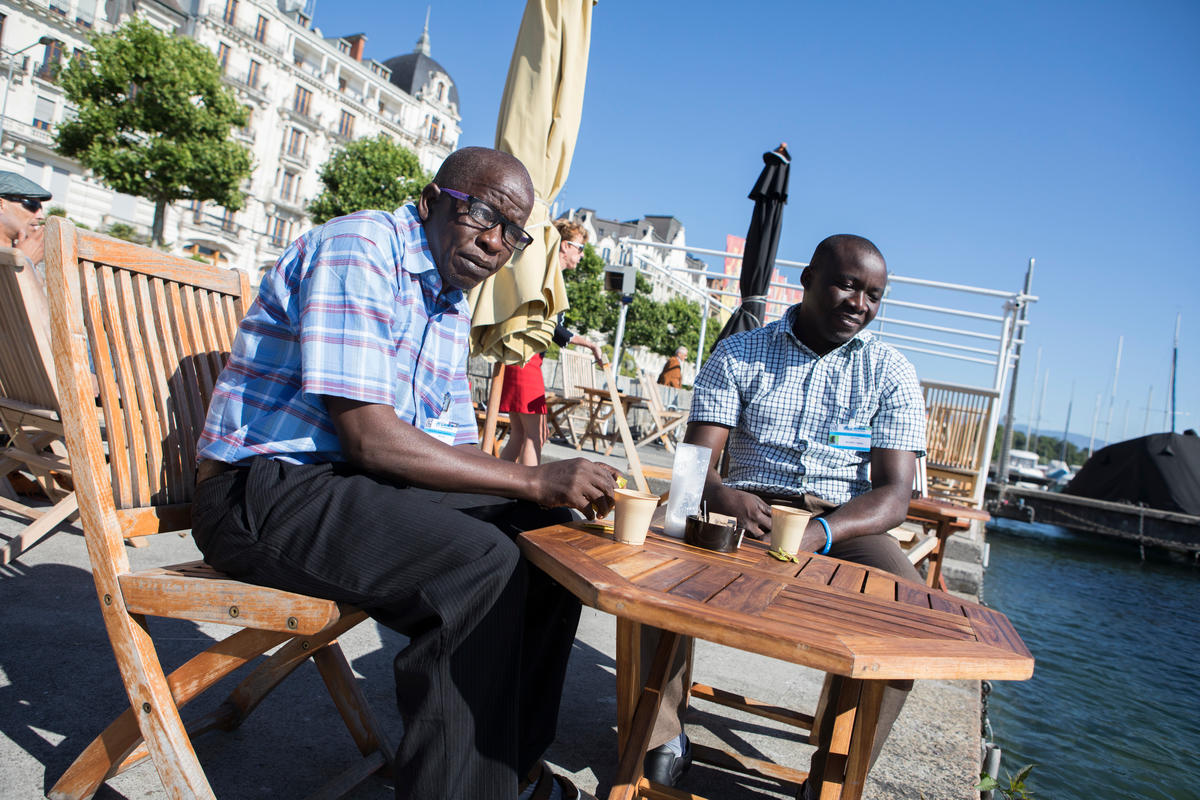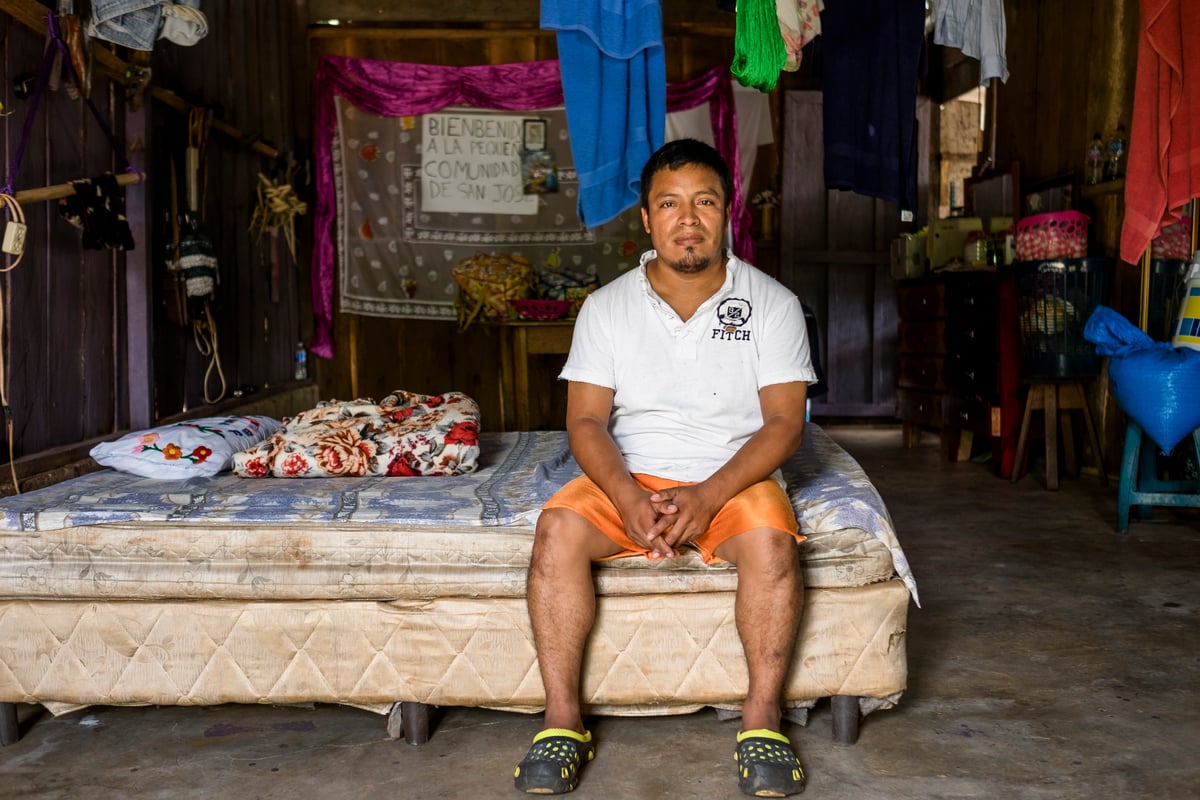Q&A: Ambush in Somalia fails to deter Austrian aid worker
Q&A: Ambush in Somalia fails to deter Austrian aid worker

VIENNA, Austria, April 25 (UNHCR) - Fatal attacks on UNHCR staff members in Algeria and Chad last year were a grim reminder of the risks that aid workers face as they strive to bring protection and assistance to needy people around the world. Austrian national, Katharina Wehrstein, recently came face-to-face with the dangers when she was working as an eligibility officer for the UN refugee agency in Somalia. The 30-year-old UN Volunteer and her local driver narrowly escaped an ambush earlier this month on their vehicle in Garowe, capital of the northern Somalia region of Puntland. She recently spoke to UNHCR Public Information Officer Roland Schönbauer in Austria, where she has been recuperating from the ordeal. Excerpts from the interview:
Please tell us about the attack.
I left the office at about 2.30 in the afternoon [of April 5, 2008]. The driver and I had just turned a corner when we spotted a white station wagon at a crossroads ahead of us. When we got closer, the car started to move very slowly. That was when I thought something was wrong. When we were almost level with the vehicle, it pulled across our path and we had to stop. I quickly locked the door. At the same time, a man got out of the car with an AK-47 [assault rifle]. I cowered under the seat and told the driver to drive off, but our vehicle stalled.
Meanwhile, the attackers had opened fire. While the driver tried to restart the engine, a bullet smashed through the window on his side of the vehicle. Fortunately it missed him and, with his wits about him, he managed to reverse the car. The Special Police Unit, which always escorts our vehicle, fired back and the attackers were distracted.... Taking detours, we arrived at the UN building where I was staying. I was extremely shocked, but unscathed.
What were you thinking at the time?
At first, I thought: "I have to get out of here as quickly as possible." But when the car stalled and there was gunfire all around, I thought, "That's it." I felt that I was all alone with the driver in a hail of bullets and we could not get away.
Do you think Somalia is too volatile and insecure to work in?
When I signed a contract with UNHCR, I was totally aware of the lack of security in the country. But there are many people in Somalia who need our help. You have to weigh one thing against the other.... I hope we can continue to help.
Tell us more about these people in need of help.
We mainly provide aid to internally displaced people. Due to years of fighting - and now due also to drought and hunger - more than 1 million people have fled their homes and moved to other parts of Somalia. In 2007 alone, some 700,000 men, women and children left their homes. About 20,000 a month leave their homes in the capital, Mogadishu. Now they are living in makeshift settlements in outlying districts.
These internally displaced people and refugees are living under harsh conditions.... Many live on the streets in appalling sanitary conditions. In Puntland, many of the displaced people try to find work, mostly carrying cargo in the Gulf of Aden port of Bossaso. Many save up to pay for a sea crossing to Yemen, which is often dangerous. In the first three months of 2008, around 8,000 people made the crossing, twice as many as in the previous year. Some 300 people died or are missing. Since the beginning of the year, about 15,000 Somalis have sought asylum in Kenya, Djibouti, Ethiopia and eastern Sudan.
What can UNHCR do to help?
We are constantly organizing aid shipments to Mogadishu and other parts of Somalia. [Mainly south and central Somalia as well as Puntland] Last year, UNHCR staff members distributed desperately needed food, sleeping mats, kitchen items, jerry cans, mosquito nets and blankets to 200,000 people. Currently, we are documenting human rights violations and other infringements. UNHCR is also responsible for coordinating the legal and refugee protection activities of humanitarian organizations. We are trying to extend our efforts, deploying more staff, but the current security situation makes it more difficult for us to put this into practice.
UNHCR mainly helps the internally displaced in Somalia. But you have also mentioned refugees - where are they headed and where are they from?
Mainly on their way to Yemen.... They are extremely desperate. Most of those seeking asylum in Somalia come from Ethiopia and belong to the Muslim ethnic minority group known as the Oromos. For them, it seems obvious to flee to Somalia or - if they have some money - to Kenya.
Part of my job was to interview them to determine whether or not they could be granted refugee status. The next stage was to provide care, medical aid and programmes that could help them earn a living.
What kind of programmes?
The focus is on education. Since last year, some of the refugee children have begun attending school again. And we aim to provide more girls and boys with the means to obtain textbooks and other school equipment. We are also planning a project aimed at helping refugees start their own small businesses, such as a tailoring shop or a café, or to find employment.
You are safe now and receiving counselling. What are your future plans?
I want to continue working with UNHCR. Maybe not in Somalia, but I will definitely work somewhere else in the humanitarian field.... It is the job I want to do. I cannot imagine myself sitting in a lawyer's office in Vienna. [Wehrstein is a lawyer by training.]
What is it that attracts you to humanitarian work?
I grew up in a European country where everything runs smoothly, be it the health service or the education system. I was lucky enough to receive a good education and the support that came with it. Now it's my time to help other people who were not as lucky.
Is there any experience from Somalia that particularly inspires you?
Yes, indeed. A woman came to me in September seeking to be recognized as a refugee. She was a single mother with a four-year-old daughter and we later found out that she was suffering from tuberculosis and HIV. There were times when she couldn't even walk.
UNHCR arranged medical assistance for her and she feels much better now. She is able to walk and has even started to work. Every time we see each other, her little daughter runs to meet me, takes my hand and just smiles at me. These moments always gave me strength at those times when the security situation was particularly bad and I was thinking, "I've got to get out of here, I cannot continue working."

